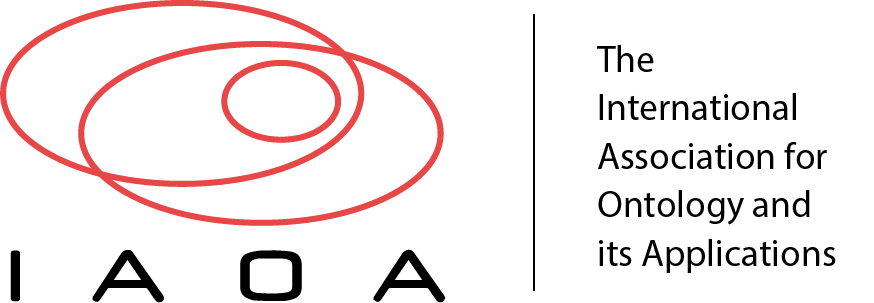——————————
TOPICS OF INTEREST
——————————
Areas of particular interest to FOIS include the following:
Foundational Issues
* Kinds of entities: particulars/universals, continuants/occurrents, abstracta/concreta, dependent entities/independent entities, natural objects/artifacts
* Formal relations: parthood, identity, connection, dependence, constitution, causality, subsumption, instantiation
* Vagueness and granularity
* Space, time, and change
Methodological issues
* Top-level vs. domain-specific ontologies
* Role of reference ontologies
* Ontology similarity, integration and alignment
* Ontology modularity, contextuality, and evolution
* Formal comparison among ontologies
* Relationship with cognition, language, semantics, context
* Ontologies and Knowledge Graphs
Domain-specific ontologies
* Ontology of physical reality (matter, space, time, motion etc.)
* Ontology of biological reality (organisms, genes, proteins, cells etc.)
* Ontology of mental reality and agency (beliefs, intentions, emotions, perceptions, cognition, etc.)
* Ontology of artifacts, functions, capacities and roles
* Ontology of social reality (institutions, organizations, norms, social relationships, artistic expressions etc.)
Applications
* Ontology-driven information systems design
* Ontological foundations for conceptual modeling
* Knowledge management
* Qualitative modeling
* Computational linguistics
* Information retrieval
* Semantic Web
* Business modeling
* Ontologies and Machine Learning
* Ontologies and Explainable AI
* Ontologies for particular scientific disciplines (biology, chemistry, geography, physics, geoscience, cognitive sciences, linguistics etc.)
* Ontologies for engineering: shape, form and function, artifacts, manufacturing, design, architecture etc.
* Ontologies for the humanities: arts, cultural studies, history, literature, philosophy, etc.
* Ontologies for the social sciences: economics, law, political science, anthropology, archeology, etc.
——————————————–
CONFERENCE ORGANISATION
——————————————–
General Chair
* Roberta Ferrario (ISTC CNR, Trento, Italy)
Program Chairs
* Boyan Brodaric (Geological Survey of Canada, Canada)
* Fabian Neuhaus (Otto von Guericke University Magdeburg, Germany)
Local Organization
* Oliver Kutz (Free University of Bozen-Bolzano, Italy)
* Nicolas Troquard (Free University of Bozen-Bolzano, Italy)
Publicity Chairs
* Guendalina Righetti (Free University of Bozen-Bolzano, Italy)
* Maria Hedblom (Free University of Bozen-Bolzano, Italy)
Proceedings Chair
* Megan Katsumi (University of Toronto)
Workshop / Tutorial Chairs
* Torsten Hahmann (University of Maine)
* Claudio Masolo (ISTC CNR, Trento, Italy)
Ontology Show and Tell
* Michael Gruninger (University of Toronto)
* Frank Loebe (University of Leipzig)
Early Career Symposium
* Pawel Garbacz (John Paul II Catholic University of Lublin)
* Selja Seppala (University College Cork)
Demo and Industrial Track Chairs
* Robert Hoehndorf (King Abdullah University of Science and Technology)
* Amanda Vizedom (Credit Suisse)



